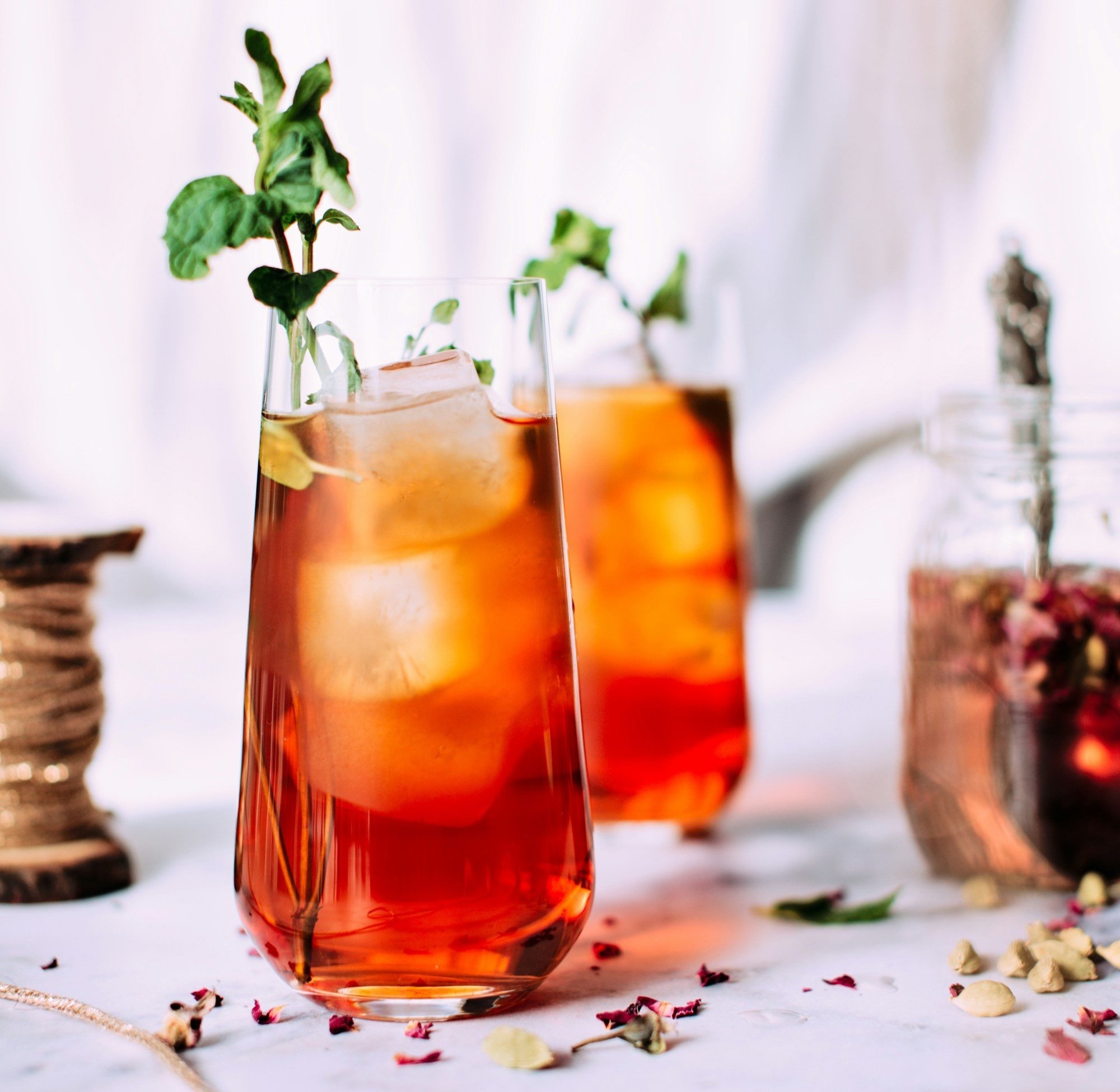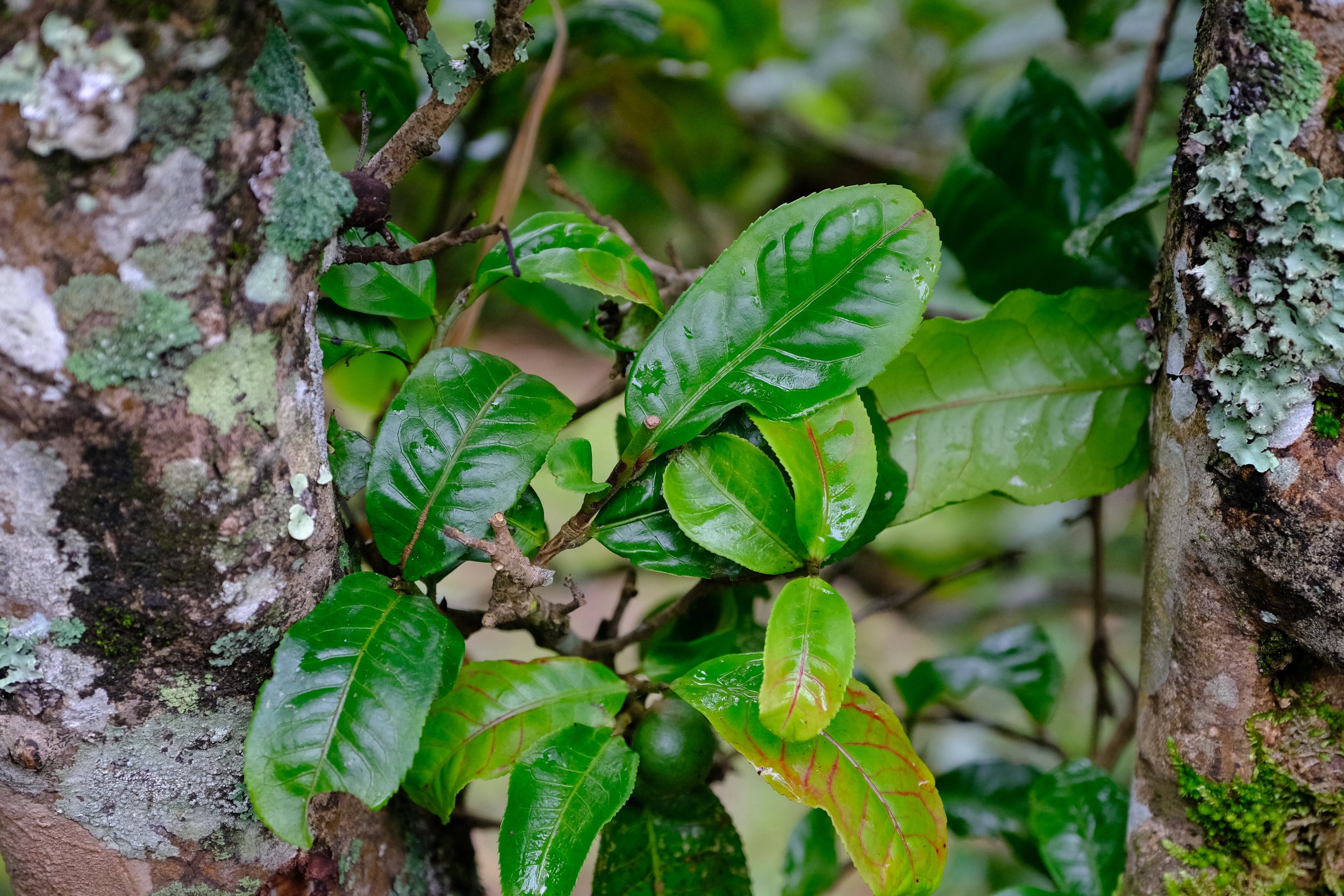
WELCOME IN — Part One
In the first part of her three-part memoir Welcome In, writer Cat Kerr takes readers behind the scenes of a matcha café opening in Orlando’s Little Saigon district. Blending personal reflection with cultural insight, Cat recounts her unconventional job interview with Minh, the Vietnamese café owner, and the whirlwind of preparations leading up to the café’s soft launch.
Through warm, honest storytelling, Cat introduces the diverse team — mostly Asian American university students — and shares moments of connection, humour, and first-day chaos. From unpacking supplies to whisking ceremonial-grade matcha and facing an unexpectedly long queue, the piece captures the real-life energy of opening a specialty tea shop rooted in community, culture, and care.

From Tea Bags to Loose Leaf: Discover the True Flavour of Tea
You love your fruity tea bags—those bright, cheerful blends that turn hot water into a comforting drink. But here’s a little secret: while they may be delicious, most tea bags aren’t what we call “true tea.” True tea comes from the leaves of a single plant, Camellia sinensis, and what you’ve been enjoying might be more like an infusion of herbs, fruits, and flavourings than tea in its purest form.
Does that mean you should give up your favourite brew? Not at all. But if you’re curious about exploring tea as it was meant to be—a world of craftsmanship, culture, and flavours as diverse as wine or coffee—you’re in for a treat. Let’s walk through what makes true tea different, why it matters, and how to start this exciting journey.

Ceremonial Matcha: What Does It Really Mean?
Matcha, the vibrant green powdered tea, has captured the world’s attention. From its origins in Japanese tea ceremonies to its modern use in lattes and desserts, matcha has become a symbol of mindfulness, energy, and craft. But what does "ceremonial matcha" actually mean? Is it a standard of quality, or just clever marketing? Let’s dive deeper to demystify this label and uncover the beauty of matcha.

The World of Tea: Discovering the Differences Between Green, Black, White, Wulong, and Pu’er
Tea. It’s one word, but it holds a world of flavours, traditions, and stories. For most people, tea is a quick bag dunked in hot water. But for those who dive deeper, tea becomes something extraordinary—a drink steeped in history, culture, and craftsmanship.
In this guide, we’ll simplify the preparation methods, as is often done outside East Asian tea-producing countries, to make it easy for anyone to get started. But if you’re ready to unlock the full range of flavours, try brewing with a gaiwan or kyusu. These traditional tools allow the tea to fully open up, offering an experience that’s truly transformative.

Kōridashi: The Art of Brewing Tea with Ice
Ever heard of cold brewing tea? It's a popular method where tea leaves are steeped in cold water for hours, creating a refreshing drink. But have you ever tried ice brewing? This lesser-known technique, called kōridashi, involves letting ice melt over the tea leaves, transforming the brewing process into a slow, meditative ritual. Wondering what makes this method so special?

Chinese vs Japanese green tea: An In-Depth Exploration
Understanding the nuances between Chinese and Japanese green teas can elevate your tea-drinking experience from ordinary to extraordinary. Each country's distinct approach to tea cultivation, processing, and culture results in unique flavors and aromas. Let's delve into the main differences, with some fascinating examples to highlight these distinctions.

Summer Tips for Specialty Tea Drinking
Summer is the perfect season to explore and enjoy specialty teas in refreshing ways. Whether you're lounging by the pool, having a picnic, or just looking to cool down, here are some tips to elevate your tea experience during the hot months.

I Want to Drink Better Tea. Where to Start?
So, you’re ready to up your tea game. Maybe you’ve been sipping on the same old tea bags for years and it’s time for something more exciting. Or perhaps you’ve tasted amazing tea at a friend’s house or a café, and now you’re hooked. Whatever your reason, here’s your guide to starting your journey towards better tea.

Why Should I Care About Sustainable Conditions of Tea Making?
So, you love tea. Maybe it’s your morning ritual, your afternoon pick-me-up, or your evening wind-down. But have you ever thought about what goes into that perfect cup? No, not just the leaves and hot water. I’m talking about the bigger picture—the story behind those leaves. Let’s talk about why sustainable tea matters and why you should care.

Can Tea Go Bad?
If you’re a tea lover, you might have wondered at some point: can tea go bad? The answer is a bit nuanced. While tea doesn’t spoil like milk or cheese, it can definitely degrade over time. Here’s everything you need to know about the shelf life of tea and how to keep it fresh for as long as possible.

What is the Difference Between Speciality Tea and Supermarket Tea?
Ever wondered why a cup of speciality tea tastes like a serene walk through a lush garden while your typical supermarket tea feels more like a hurried sprint through a crowded market? The differences are significant, and once you know them, you’ll never look at those tea bags the same way again. Let’s break it down.

What Does Tea Taste Like?
Let’s dive into the taste of tea. It’s a bit like describing music – varied, complex, and deeply personal. The flavours of tea are influenced by its type, origin, and how it’s processed. Here’s a quick tour of the main types of tea and what you can expect from each.

What Is Tea
Tea, one of the world’s most beloved beverages, originates from the leaves of the Camellia sinensis plant. This plant thrives in various climates and terrains, giving rise to a diverse range of teas, each with its unique characteristics and flavors. The story of tea spans centuries and continents, intertwining with the cultures and histories of many nations.

Where Does Tea Come From?
Alright, let's get down to the basics: tea comes from a plant called Camellia sinensis. Think of it as the rockstar of the tea world. Every type of tea you've heard of — black, green, wulong, white, yellow, dark — all of them start with this one plant. It’s like how all your favourite songs are played on the same guitar, just with different riffs.

The Perfect Pour: How to use temperature for the best tea Brew
Brewing tea is an art form, a ritual that varies from culture to culture and from one tea variety to another. The temperature at which tea is brewed can significantly affect its flavor, aroma, and overall drinking experience. This comprehensive guide will explore the nuances of brewing temperatures across Western style, gong fu style, and Japanese style tea brewing, ensuring that your next cup is as perfect as it can be.

The Essential Guide to Caffeine in Tea: What Every Tea Drinker Should Know
Welcome to the ultimate guide on caffeine in tea! Whether you're a seasoned tea enthusiast or just beginning to explore this fascinating world, understanding the role of caffeine in your favorite cup is key to enhancing both your enjoyment and your health.

Herbal Teas: Caffeine-free Alternatives
Herbal ‘teas’, correctly referred to as tisanes, are a delightful and diverse group of beverages made from the infusion of herbs, spices, fruits, or other plant materials in hot water. Unlike traditional teas derived from the Camellia sinensis plant, herbal teas do not contain caffeine, making them an ideal choice for those seeking relaxation without stimulation. Here’s a closer look at the enchanting world of herbal teas:

Decaffeinated Tea: What You Need to Know
Decaffeinated tea is portrayed as an alternative for those looking to enjoy the taste and benefits of tea without the caffeine. Whether you're sensitive to caffeine, looking to reduce your intake, or simply want a calming cup before bed, understanding decaffeinated tea is key. Here's what you should know.

Facing the plants with ikebana
kebana, the Japanese art of flower arrangement, transcends mere decoration to become a philosophical journey that blends nature and humanity into living sculptures. This disciplined art form, rooted in ancient Japanese rituals, stresses simplicity, balance, and harmony. It invites both arranger and observer into a moment of introspection and peace.

Best Tea For Cold Brew
Cold brewing has become a popular method for tea enthusiasts looking to enjoy their favorite leaves in a new and refreshing way. Unlike traditional hot brewing, cold brewing involves steeping tea leaves in cold water for an extended period.
